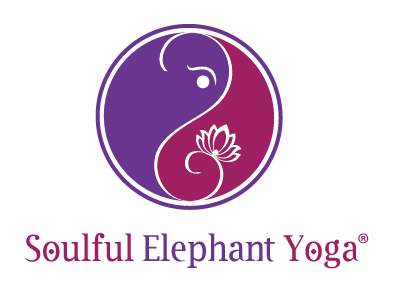In my personal practice, I have been working with Compassionate Abiding lately--trying to stay present and in contact with difficult emotions such as grief, worry, anxiety, shame, and fear. It has proven a challenging, but wholly worthwhile practice, so I wanted to share it.
A Heads-Up
The practice of Compassionate Abiding is not for everyone right now. Consider your current capacity and circumstances before engaging in the practice. It is overwhelming simply to be living in a time of a global pandemic, a toxic national environment due to increased outward acts of racism and the denial of years of injustice and oppression, and the stress of the upcoming elections! The lived experiences of some individuals will create even more trauma than others as a result. So we must enter with care and compassion into exploration of difficult emotions. If you feel safe exploring your difficult emotions, start with just a few minutes at a time of these practices. We must build these skills gradually, overtime. If it doesn’t feel safe or skillful to work with difficult emotions in your meditation practice right now, I suggest trying Metta meditation. Metta meditation is a complementary practice to Compassionate Abiding. It helps us grow our compassion for others and ourselves, that compassion, then is what helps us have the capacity to stay present with difficult emotions over time.
ABOUT COMPASSIONATE ABIDING
Compassionate Abiding was first introduced to me by one of my teachers Pema Chödrön in her books, specifically in Taking the Leap. I was reminded of it again recently this September when I participated in a 3-day retreat with Tim Olmsted through The Omega Institute. Just like everything in mindfulness: the actual process is easy to understand logically, but difficult to do. The point is to directly contact your difficult emotions, feel them in your body, breath, and being, and get to know them. Overtime we increase our window of tolerance for staying and investigating difficult emotions. That’s how we can truly create change in our lives.
THE PRACTICE
In a comfortable seat or any position that feels right to you, start to notice your breath for a minute or two. If you are in a safe space and feel comfortable doing so, close your eyes.
Breathe in: inviting in your difficult emotion(s) in and making space for it to be there, without needing for it to be any different that it is or wishing it would go away.
Breath out: whatever helps you to be with that difficult emotion, whatever will bring you ease around the emotion.
You can stay with one emotion/circumstance you are confronting in your life, or let it be a more general exercise of your most common difficult emotions. You don’t have to contact them all at first, and definitely not all in one sitting no matter what you chose.
So the practice may look like:
Inhale fear and uncertainty, Exhale hope and trust
Inhale fear, Exhale trust …
Internally you aren’t just contacting the emotion; you are making a bigger and bigger space for it. You breathe it in deeply, as Pema says, it is as if your heart is just getting bigger and bigger in order to hold the difficulty.
SIDE COACHING & NOTES
We use our breath to keep us moving in this practice. Let your inhales and exhales change as you see fit. Open mouth, through the nose, long, loud it doesn’t matter – let it happen. You have permission to make it your own: do it standing, lying down, or as you are taking a walk. Pema herself talks about doing this practice in nature while walking slowly because it supports her efforts. Where might you feel the most supported while engaging in this practice?
Don’t worry if it does not come naturally to you. Staying present with hard feelings and thoughts is not a skill that we use a lot in our everyday lives. (Typically we distract ourselves away from the present to push away the unpleasant thoughts.)
AND SO...
Compassionate Abiding and similar practices that invite us to get to know our difficult emotions not only support us in getting to know ourselves better and seeing our different patters of reactivity, but also seeing our connection with others. We’re able to better recognize our “sameness” and shared humanity: that everyone has fear and worry, and that we’re all in the same boat and just trying to stay afloat.
For a little more about Compassionate Abiding, check out this podcast featuring Pema: : https://resources.soundstrue.com/podcast/pema-chodron-compassionate-abiding/
——————
Photo by lucas clarysse on Unsplash
